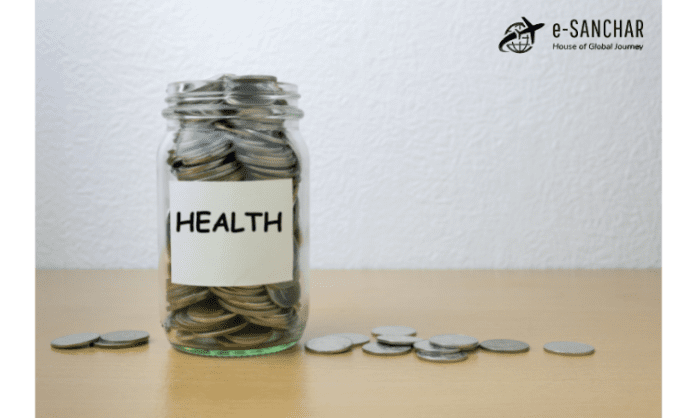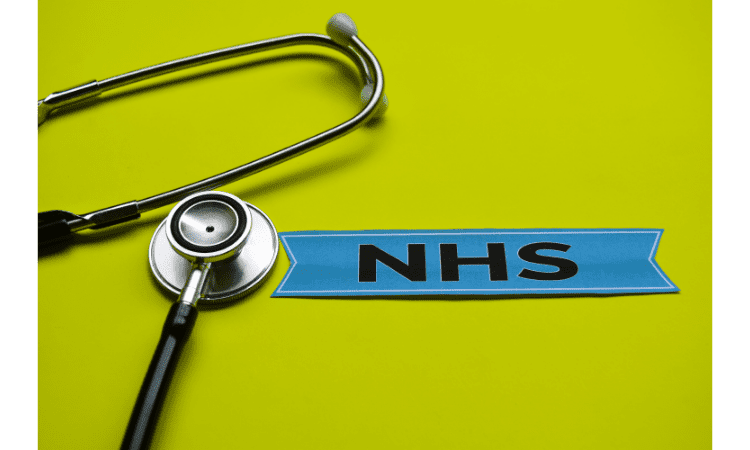
When it comes to financial planning, saving for healthcare expenses is often overlooked. However, the importance of setting aside money for healthcare cannot be overstated. Illness and injury are unpredictable and can happen to anyone at any time, and the financial burden of medical bills can be overwhelming. In this blog post, we will explore the benefits of saving for healthcare expenses and why it is a crucial aspect of financial planning. From reduced stress and financial burden to increased flexibility and tax benefits, we’ll explain why saving for healthcare should be a top priority for individuals and families. Whether you’re just starting out with your savings plan or looking to make adjustments to your existing strategy, this post will provide valuable insights and information to help you plan for your health and well-being.
Mentally and physically, you are your most important asset.
Reduce financial burden

One of the primary benefits of saving for healthcare expenses is that it can help reduce the financial burden of unexpected illnesses or injuries. Medical expenses can add up quickly, and without sufficient savings, individuals and families may find themselves struggling to pay bills or facing the prospect of going into debt.
In some cases, unexpected medical expenses can be the cause of financial ruin, especially if the individual or family doesn’t have health insurance, has a high-deductible health plan, or the health emergency is not covered by the insurance. When an individual or family has money saved for healthcare expenses, they have a safety net that can help them to manage the costs of treatment and avoid financial hardship.
For example, if you have $1000 set aside for unexpected medical expenses, and you end up needing an emergency procedure that costs $5,000, you will have to come up with the remaining $4000. The cost of $4000 may be manageable for some people, but for others, it could be a huge financial burden, even with help from a credit card or a loan. Having money saved in advance can help absorb some of the cost and make it more manageable.
It is important to note that saving for healthcare expenses should be a part of a comprehensive financial plan that also includes saving for retirement, emergencies, and other important expenses.
The NHS can’t always help you.
Increase flexibility

Another benefit of saving healthcare expenses is that it can provide individuals with greater flexibility when making important health decisions. When an individual or family has money saved for healthcare expenses, they may feel more comfortable seeking out a second opinion or pursuing more expensive treatment options. This can be especially important when dealing with serious health issues, as getting the best possible care can make a significant difference in the outcome.
For instance, if an individual has saved enough money, they may feel comfortable seeking out a specialist who may have a better success rate in treating their condition, rather than going with the first doctor they see. This can be especially important in the case of serious health issues like cancer or chronic diseases, where time is of the essence.
Having money saved for healthcare expenses can also provide individuals with more options when it comes to elective procedures or treatments. For example, if an individual has money saved, they may feel more comfortable pursuing a cosmetic procedure that they otherwise might not have been able to afford.
Furthermore, having money saved for healthcare expenses can also provide individuals with greater peace of mind when it comes to their healthcare choices. Knowing that they have money set aside for healthcare expenses can allow them to focus on getting the best possible treatment and recovering from their illness or injury, rather than worrying about how they will pay for it.
It’s important to note that saving for healthcare expenses does not guarantee a certain outcome in your health journey, but it gives you more control and options when it comes to your health decisions and treatment.
Read Also: Patient rights to medical records
Savings can help motivate you to focus on your goals

Saving money for healthcare expenses can also encourage better budgeting and savings habits. Setting money aside for healthcare expenses can help individuals to prioritize saving, and can make them more conscious of their overall spending habits. This can be especially important for individuals who may have a tendency to overspend or who struggle to save money.
When saving for healthcare expenses, individuals are forced to think about how much money they need to save each month in order to reach their savings goal. This can help them to better understand their income and expenses, and can also encourage them to make changes to their spending habits in order to free up more money for saving.
In addition, when individuals start saving for healthcare expenses, they will likely begin to think more about their overall health and well-being, which can motivate them to make positive changes to their lifestyle. This can include things like eating better, exercising more, and avoiding risky behaviors like smoking or excessive alcohol consumption, which can ultimately help to lower the risk of future health issues.
Saving for healthcare expenses can also help individuals to build a sense of financial discipline, which can have a positive impact on their overall financial well-being. As they see the money in their healthcare account grow, they might develop a habit of saving for other goals and eventually, an overall savings culture.
In conclusion, saving for healthcare expenses is not only important for addressing unexpected medical expenses but also can have a positive impact on an individual’s overall savings and budgeting habits, and even on their general well-being.
Insurance works better when you care for your health
Peace of mind

Having money saved for healthcare expenses can provide individuals and families with a sense of security and peace of mind. Knowing that you have money set aside for unexpected medical expenses can take a lot of pressure off of you and your loved ones in the event of an illness or injury. This can be particularly important for individuals and families who may have pre-existing health conditions or are at risk for certain illnesses.
For example, if an individual has a history of heart disease in their family, they may feel more at ease knowing that they have money saved for healthcare expenses in the event that they develop the same condition. This can help them to focus on taking care of their health and preventing illness, rather than worrying about how they will pay for medical expenses.
Furthermore, having money saved for healthcare expenses can also provide a sense of security for individuals and families when they are planning for the future. Knowing that they have money set aside for healthcare expenses can give them the confidence to make important life decisions, such as starting a family or making a career change.
In summary, saving for healthcare expenses can provide individuals and families with peace of mind by reducing the financial stress and anxiety that comes with unexpected medical expenses, and allowing them to focus on their health and well-being.
Tax Benefits

Many countries provide tax benefits for individuals who set money aside for healthcare expenses. In the United States, for example, contributions to a Health Savings Account (HSA) or Flexible Spending Account (FSA) can be tax-deductible, and withdrawals used for qualified medical expenses are tax-free.
An HSA is a personal savings account that can be used to pay for qualified medical expenses, including deductibles, copays, and prescriptions. They are typically paired with a high-deductible health plan, and the money you put in an HSA is not subject to federal income tax.
An FSA, on the other hand, is an employer-sponsored savings account that can be used to pay for qualified medical expenses. It is also a pre-tax account which means the contributions you make will lower your taxable income and thus lower the taxes you owe.
These tax benefits can make a significant difference when it comes to saving for healthcare expenses. By setting money aside in an HSA or FSA, individuals can effectively lower their tax bill while also setting money aside for healthcare expenses. This can make it easier to save for healthcare expenses, and can also make healthcare expenses more affordable.
It is important to note that the regulations and rules surrounding HSAs and FSAs can vary depending on where you live, so it’s important to consult with a tax professional or financial advisor to determine if either of these options is right for you and how to use them to your advantage.
Conclusion
Saving for healthcare expenses can be important for a variety of reasons. Having money set aside for healthcare expenses can help reduce stress and financial burden in the event of an unexpected illness or injury. Additionally, having money saved for healthcare expenses can also provide greater flexibility and peace of mind when making important health decisions. Furthermore, health savings account (HSA) or flexible spending accounts (FSA) can provide tax benefits for individuals who are able to set money aside for healthcare expenses.











